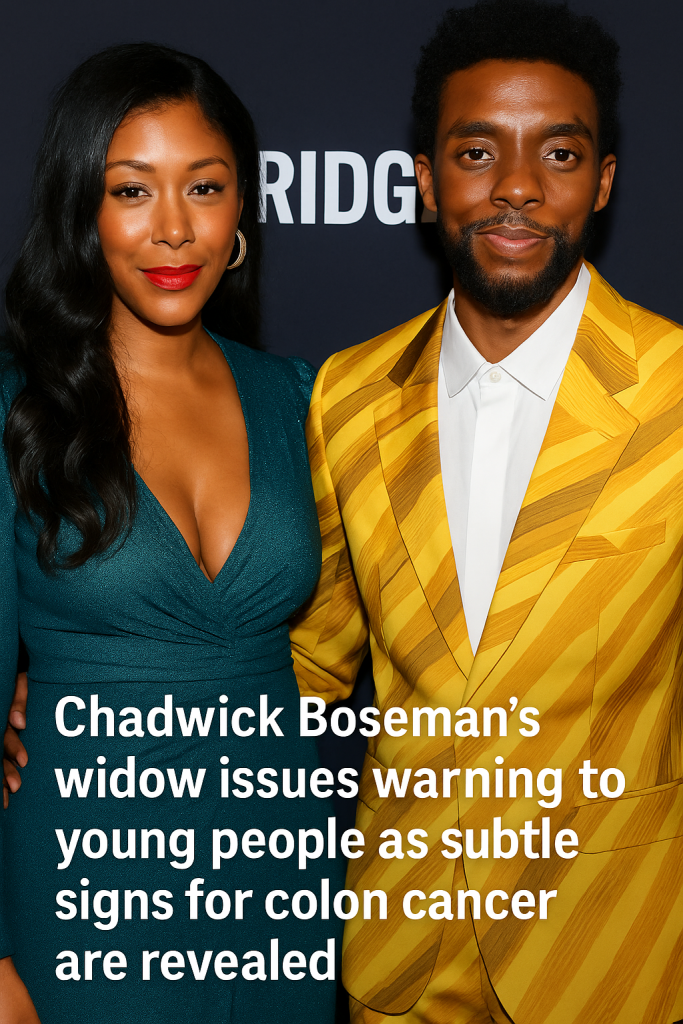In a heartfelt and urgent message to young adults, Brandi Boseman, widow of the late actor Chadwick Boseman, has spoken out about the often overlooked and subtle signs of colon cancer, a disease that tragically took her husband’s life at just 43 years old.
Chadwick Boseman, beloved for his groundbreaking role as Black Panther, shocked the world when news of his colon cancer diagnosis came to light after his death in 2020. Since then, Brandi Boseman has dedicated herself to raising awareness about this silent but deadly disease, urging younger generations not to ignore warning signs that are often dismissed as minor or unrelated health issues.
“If Chadwick’s story teaches us anything, it’s that colon cancer does not discriminate by age,” Brandi shared in a recent public statement. “Too many young people think they’re invincible to this disease because it’s commonly associated with older adults. That’s not always the case. Awareness and early detection saved my husband’s life for years, and it can save yours, too.”
Colon cancer rates in young adults are on the rise, according to the latest medical research and health statistics in 2024. Experts confirm that while traditionally linked with older populations, people under 50 are increasingly being diagnosed with aggressive forms of colorectal cancer. This shift underscores the urgency of recognizing early symptoms and seeking timely medical advice.
So, what are the subtle symptoms that could be overlooked? Medical professionals and cancer awareness advocates highlight a range of signs that, although common in other less serious conditions, may indicate colon cancer. These include:
- Persistent abdominal discomfort such as cramps, gas, or pain
- Changes in bowel habits, including constipation or diarrhea lasting more than a few days
- Rectal bleeding or blood in stool, which might be mistaken for hemorrhoids
- Unexplained weight loss or fatigue
- A feeling that the bowel doesn’t completely empty
Brandi stresses that these symptoms can be subtle and easily ignored, especially by younger people who might attribute them to stress or diet. “Don’t brush these signs off. Listen to your body and speak to a healthcare professional if you notice something unusual,” she warns.
Furthermore, family history and lifestyle factors can affect risk but are not the only indicators. “Even if you don’t have a family history of colon cancer, you’re still at risk,” Brandi explained. “Chadwick didn’t have a family history. That’s why awareness and routine screenings are crucial.”
The American Cancer Society and numerous health experts now recommend that adults begin colorectal cancer screening by age 45, or younger if there are risk factors, a change from the previous guideline of age 50. These screenings can detect pre-cancerous polyps and early-stage cancers when treatment is most effective.
In honor of Chadwick’s memory, Brandi Boseman has founded outreach campaigns aimed at educating communities about the early signs of colon cancer, particularly targeting younger demographics who may feel immune to such illnesses. Her message is one of hope, vigilance, and empowerment.
“Colon cancer can be defeated if caught early,” Brandi affirms. “Please pay attention to your health, prioritize screenings, and don’t hesitate to get checked. Your life is worth it.”



